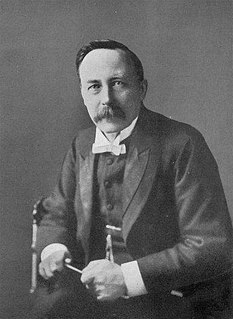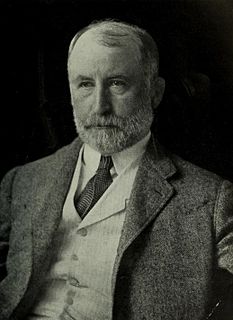A Quote by Neil deGrasse Tyson
For most of human civilization, the pace of innovation has been so slow that a generation might pass before a discovery would influence your life, culture or the conduct of nations.
Related Quotes
The so-called Christian nations are the most enlightened and progressive ... but in spite of their religion, not because of it. The Church has opposed every innovation and discovery from the day of Galileo down to our own time, when the use of anesthetic in childbirth was regarded as a sin because it avoided the biblical curse pronounced against Eve. And every step in astronomy and geology ever taken has been opposed by bigotry and superstition. The Greeks surpassed us in artistic culture and in architecture five hundred years before Christian religion was born.
A civilization is only a way of life. A culture is the way of making that way of life beautiful. So culture is your office here in America, and as no stream can rise higher than its source, so you can give no more or better to architecture than you are. So why not go to work on yourselves, to make yourselves, in quality, what you would have your buildings be?
People tell me I'm a comedian, but I don't approach acting from that perspective. I do know that everything in life has to do with your timing and perception. You have to be comfortable with the rhythm that you're in. You can't just jump into a fast rhythm if yours is slow. You might have to pick up the pace but in your own particular way. It has to do with personality, too.
The greatest element in life is not what occupies most of its time, else sleep would stand high in the scale. Nor is it what engrosses most of its thought, else money would be very high. The two or three hours of worship and preaching weekly has perhaps been the greatest signal influence on English life. Half an hour of prayer, morning or evening, every day, may be a greater element in shaping our course than all our conduct and all our thought.
If readers, young and old, would take even a moment to reflect on our rapidly shifting culture and ideology, I would be happy. Many leaders of the older generation dismiss emerging culture. Those leaders are at risk of becoming a feeble voice-piece without followers. Most of the younger generation is going deaf to the truth.
In the 1970s, what I, as a young foreign student studying in the United States, found most dynamic, exciting and impressive about this country is what much of the world continues to value most about the U.S. today: its open intellectual culture, its great universities, its capacity for discovery and innovation.
Be a man. Discover where you are now, and go on from there, making the best of things. accept your life, and you might survive it. If you hold back from it, insisting this is not your life, not where you are meant to be, life will pass you by. You may not die from such foolishness, but you might as well be dead for all the good your life will do you or anyone else.
Keeping a slow hunch alive poses challenges on multiple scales. For starters, you have to preserve the hunch in your own memory, in the dense network of your neurons. Most slow hunches pass in and out of our memory too quickly, precisely because they possess a certain murkiness. You get a feeling that there's an interesting avenue to explore, a problem that might lead you to a solution, but then you get distracted by more pressing matters and the hunch disappears. So part of the secret of hunch cultivation is simple: write everything down.





































